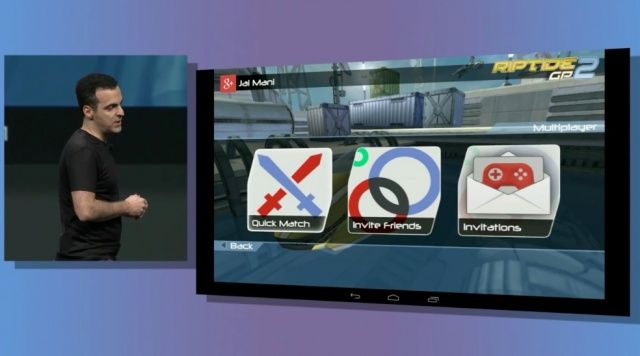How Google Will Pwn the Gaming Market
I used to mock Apple years ago because they advertised Apple as the fun alternative to stodgy, boring Windows.
The idea that Apple was fun and Microsoft was not was a misdirection at best. Windows was the biggest games platform and Xbox was the best console game (in my opinion). Apple had no games to speak of.
Five years ago, all that changed: Apple launched the iOS App Store, and it quickly became the biggest games platform ever, now making twice the money as portable game consoles. Apple’s App Store hit right when the casual and mobile games market was ready to take off in a big way.
The Android market is no slouch in the gaming arena, either, and will soon overtake the portable game console market as well.
But the mobile gaming market is still in its infancy. The Android gaming scene is about yesterday’s games — isolated, causal time-killing games, for the most part. So to take it to the next level, Google this week announced Google Play Games Services.
There are two gigantic opportunities that are potentially unique to Google: multi-device gaming and gaming as a mainstream spectator sport.
Multi-device Gaming
The biggest coming trend in gaming is multi-device games, where one part of the game is happening on one gadget, and another component on another. For example, the battlefield is on the TV, the tablet is a controller with contextual information and the phone is a communication device.
Google live-demoed this killer feature at Google I/O, but can also try it yourself with any mobile Chrome browser by going to https://g.co/racer (the idea is that you combine two or more phones and tablets to form one racetrack). This is, of course, a rudimentary and somewhat gimmicky application compared to what’s coming over the next year or two.
Google is in the best position by far to own this space, not because only Google can build the technology, but because Google Game Services has by far the biggest potential audience. Google not only covers the world’s largest operating system (Android has 900 million users now), but also iOS and the web, and this coverage will enable cross-platform unity for multi-device games.
And don’t forget that Android has a TV component.
Android is also great for ad-hoc, special-purpose devices that we can’t imagine today but which aren’t exactly phones, tablets, laptops, PCs or TVs. Companies will be special game consoles that enable play against people with phones — that sort of thing.
Gaming as a Spectator Sport
More devices and more players is one part of Google’s advantage. The other is Google+.
Gaming on Google+ got off to a bad start with Google+ Games, which really appeared to be a solution for Facebook gaming companies looking for new growth. They didn’t find growth on Google+ because the last thing the Google+ community wanted was the Facebook experience. Google announced plans to kill Google+ Games at the end of June.
Like everything else, gaming has gone social. And the social aspect has become increasingly important. But gamers are still anti-social, as a group. The reason is that social services like Xbox Live exist in their own hermetically sealed bubble, cut off from the non-gaming community.
Google announced this week that Google+ will be the place for Google Games match-ups, leaderboards and all the rest.
Offering an open, multi-OS API for gaming on mobile and Chrome and then doing the social stuff on Google+ is absolutely the right formula for a killer game platform.
It’s right for gamers. But it’s also right for non-gamers.
Adding Google+ as the social platform for gaming creates another massive opportunity that Google hasn’t even mentioned yet: gaming as a spectator sport.
As gamers organize, rank and communicate (a.k.a. trash-talk) with each other on Google+, this activity will be as private or public as gamers want it to be. And the best gamers will want it to be public. Game rivalries and tournaments will go viral, snowballing over time into a new cultural phenomenon: Gaming as a mainstream form of entertainment for non-players.
I predict that epic tournaments will be organized and live game play thrown open for public entertainment. Google’s new system will turn Google+ into a virtual stadium, an online gladiator arena for massive gaming tournaments that will turn gamers into rock stars.
This sort of thing is already happening as gaming tournaments in the US and Asia are becoming increasingly popular on TV. But TV is obviously a lousy way to follow a game tournament. Fans will prefer to watch the games where the gamers are — on Google+.
This new aspect of gaming — gaming as a mainstream spectator sport — will drive new interest in specific games, as non-players will be inspired to get into gaming in general and Google Games in particular.
Right now few associate Google with gaming. But I think the company is ideally positioned to become the biggest gaming powerhouse ever because it’s open, it has the most potential users, it’s on the most devices and it’s using a social network where non-players can become fans and spectators.
It’s too early to call Game Over for Apple and the consoles. But Google just went straight to the next level, didn’t they?
(Image courtesy of AllThingsD)



